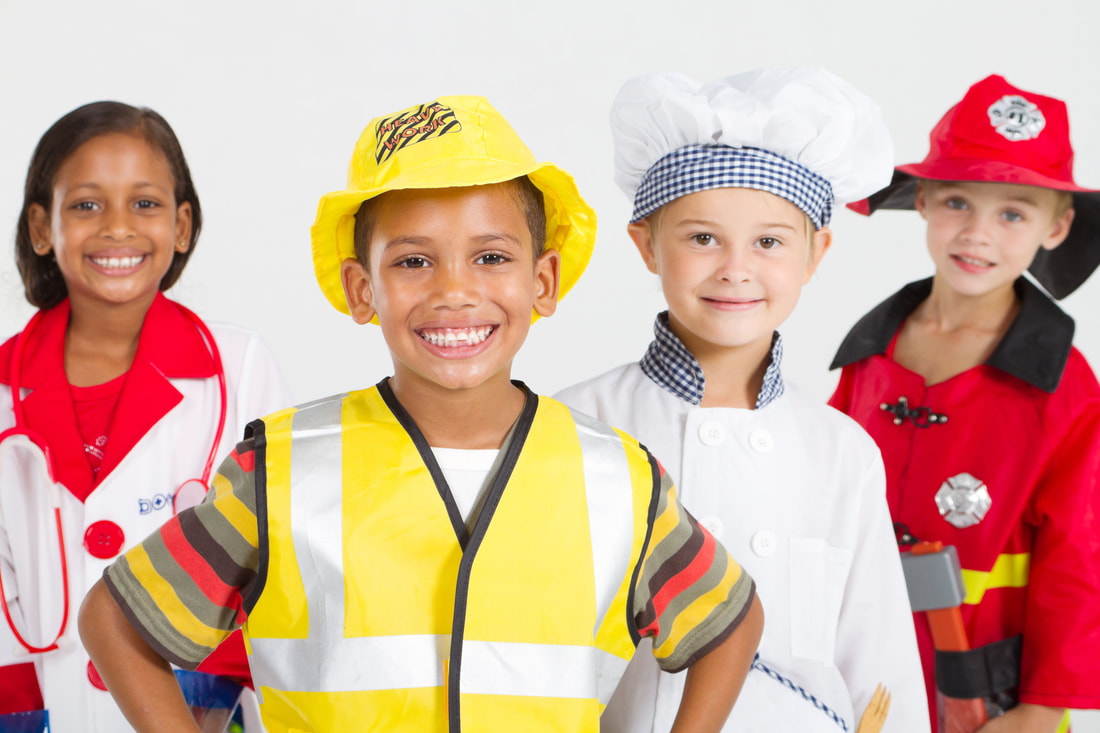 Play is vital for children for many reasons. It supports all areas of development, building their language and thinking skills, contributing to physical health and development, and helping them learn about themselves and one another. Play is the most powerful learning tool there is!
Play is vital for children for many reasons. It supports all areas of development, building their language and thinking skills, contributing to physical health and development, and helping them learn about themselves and one another. Play is the most powerful learning tool there is!
In this post we’ll look at one area of development, children’s social development, and one type of play, social play.
Social development is the gradual gaining of the skills, attitudes, relationships, and behavior that enable children to interact with others. Social play happens when children are playing with adults or with other kids.
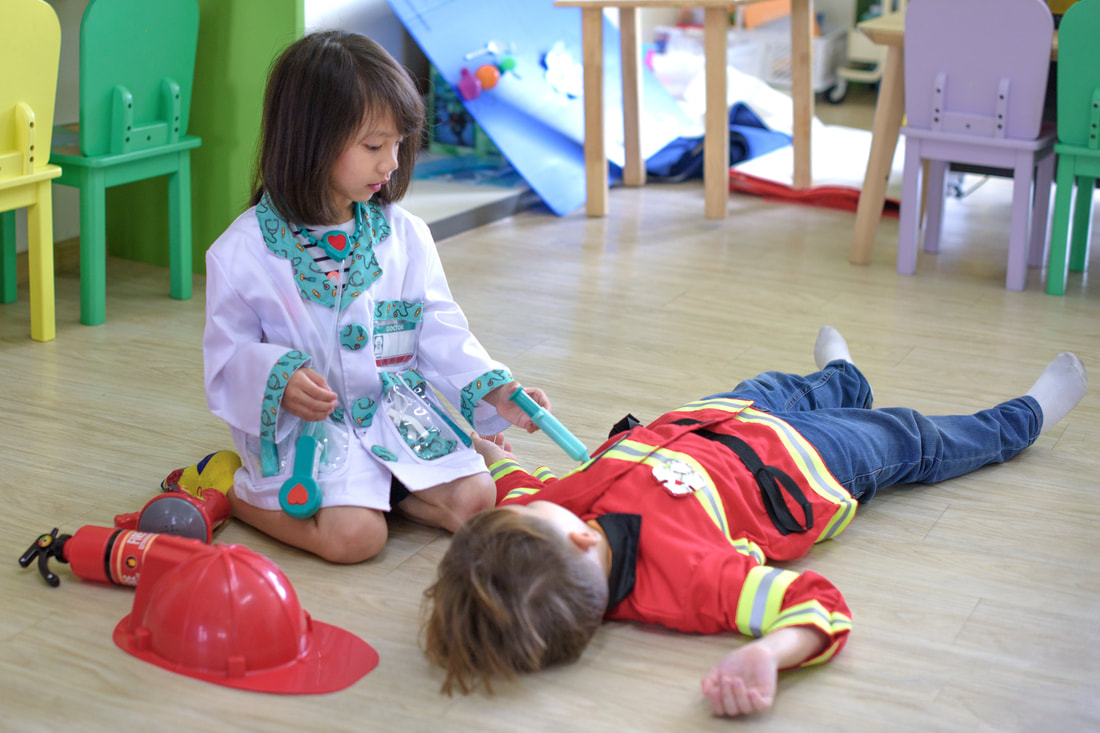 By definition, social skills develop slowly over time – children need lots and lots of practice to learn how to get along with others! In early childhood, play gradually gets more social and more complex. By about age four, children begin to engage in sociodramatic play, cooperating to take on different roles and creating their own rules for how they will play.
By definition, social skills develop slowly over time – children need lots and lots of practice to learn how to get along with others! In early childhood, play gradually gets more social and more complex. By about age four, children begin to engage in sociodramatic play, cooperating to take on different roles and creating their own rules for how they will play.
“Let’s pretend you got hurt fighting the fire and I’m the doctor who helps you.”
Sociodramatic play is an especially valuable type of play. Besides having fun (which has value in itself!), children learn social skills that include: communication, cooperation, problem-solving and perspective taking. Research shows that these social skills help children succeed in school and in life, too. (Caprara et al.)
For children to best learn social skills through play, they need lots of opportunities to play with other children, of course. But they also need support from sensitive adults. Here’s why:
- Young children often do not know what is expected in different social situations
- They lack experience and knowledge of appropriate ways to solve conflicts
- They are naturally egocentric, so it is hard for them to understand others’ intentions and feelings
We can support children’s social skill development by playing with our kids and modeling the positive social behaviors we want them to use. We can also teach them social skills using a technique called “scaffolding” – giving just enough help at first to build new skills, then letting them do more and more on their own.
Here are some ways to support young children’s development of social skills:
Communication
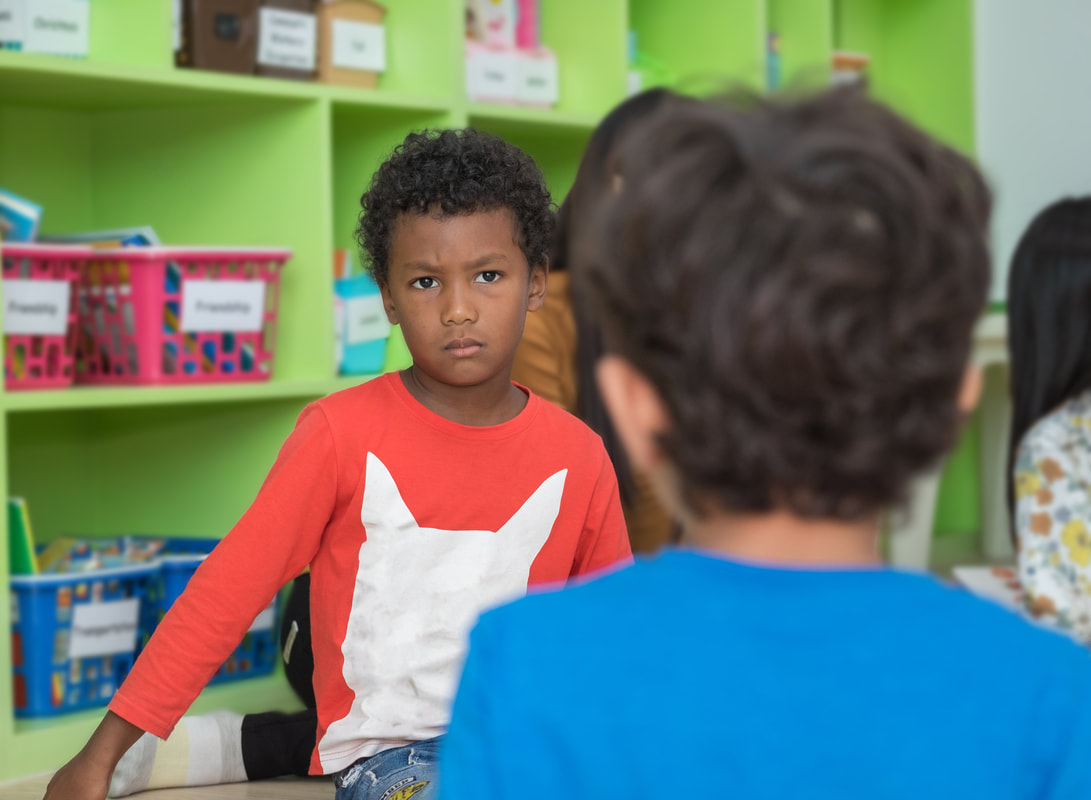 Teach children appropriate ways of getting people’s attention – “When you want Nikko’s attention, say ‘Nikko’, gently tap his shoulder, then wait for him to look at you.”
Teach children appropriate ways of getting people’s attention – “When you want Nikko’s attention, say ‘Nikko’, gently tap his shoulder, then wait for him to look at you.”- Help children tell each other directly what they want or need – “Tell Sharon, ‘I want to pretend the that the baby is sick and needs to go to the doctor.’”
- Show them how to join a play group – Asking to play is not always the best strategy! “Watch them, they are building a habitat for dinosaurs with the blocks. How could you join in?”
Cooperation
Explain what cooperation looks like in different play situations:
- Sharing: “Hold the book so Tim can see the pages.” “Roll the ball to Rachel, then she can roll it to you.”
- Taking turns: Help kids negotiate who goes first and the time for each turn.
- Compromising: Give children ideas about how each can get a little of what they want.
Problem-solving
When children play together, conflicts are inevitable. Help kids learn to solve problems collaboratively by teaching them to negotiate. Here are the steps in successful problem-solving:
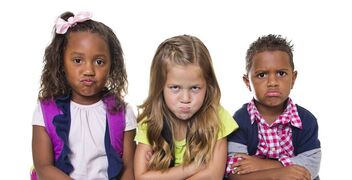 State the problem – everyone gets a say.
State the problem – everyone gets a say.- Brainstorm on solutions – again, everyone contributes.
- Choose the solution that everyone agrees on.
- Implement the solution – Decide on the logistics (length of turns, who goes first, etc.)
- Evaluate the solution – How is it working?
Perspective-taking
We can help children understand the perspective of others by pointing out:
- How others feel – “Her face is saying ‘I’m sad.’”
- How the child’s behavior affects others – “When you insist on having your way, friends may not want to play with you.”
- How other children might see things differently – “John may not like to be pulled that fast in the wagon.
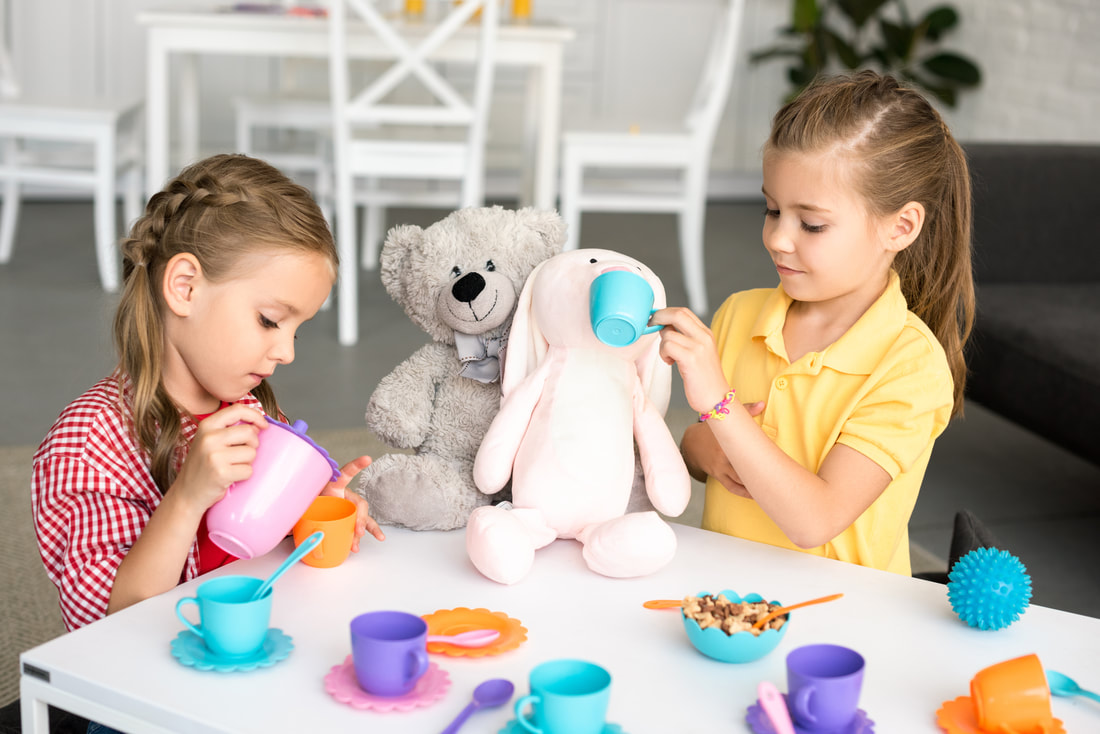 With your support and many opportunities for social play, your children will develop the social skills they need to get along with others throughout their lives. And they will have had lots of fun, too!
With your support and many opportunities for social play, your children will develop the social skills they need to get along with others throughout their lives. And they will have had lots of fun, too!
References:
Caprara, G. V., Barbaranelli, C., Pastorelli, C., Bandura, A., & Zimbardo, P. G. (2000). Prosocial foundations of children’s academic achievement. Psychological Science, 11(4), 302-306.
Forrester, M. M. & Albrecht, K. M. (2014). Social emotional tools for life: An early childhood teacher’s guide to supporting strong emotional foundations and successful social relationships. Houston: Innovations in ECE Press.
Lancy, David F. and Grove, M. Annette, “Marbles and Machiavelli: The role of game play in children’s social development” (2017). Sociology, Social Work and Anthropology Faculty Publications. Paper 621.
https://digitalcommons.usu.edu/sswa_facpubs/621
White, R. E. (2012). The power of play – A research summary on play and learning. For Minnesota Children’s Museum Smart Play. https://www.childrensmuseums.org/images/MCMResearchSummary.pdf
I’m excited to share my blog!
Whether you are a child care provider or administrator, a teacher, a parent, or a helping professional who supports young children and families, I hope you get some helpful tips to make your job easier and more enjoyable!
- Keeping Children Safe in Summer Heat: Tips for 2025 - July 14, 2025
- Books on Black History Month for Young Children - February 5, 2024
- Winter Play and Book Ideas for Young Children - January 8, 2024
- Diane Goyette
- No Comments
